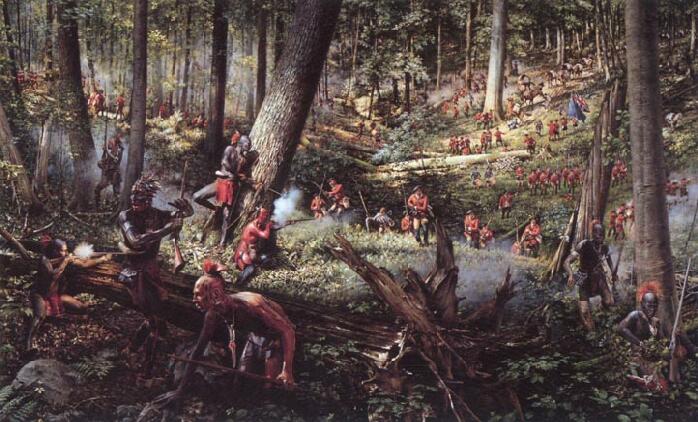The Causes of the French and Indian War, which is also called the great war of the empire or the fourth inter-colonial war, are numerous and varied. It was a war for control of the vast American territory and was also the fourth war between the French and the British for colony possession. The war lasted for about nine years before ending in British victory.
Territorial Expansion
Even though the causes of the French and Indian war may be traced to more than one factor the obvious reason was a struggle for territory and lands. The setting of the war was North America of the 1750s. Prior to this time the French and the English had coexisted peacefully for almost 100 years.
Increase in population and trade caused both France and Britain to seek new territories and markets. To secure any new claim, communities, fortresses, missions and trading posts were usually established. Native Indians were used by both the French and the British to secure their hold on their claims.
Militarization of Ohio
In 1750 a group of Virginian businessmen secured for themselves about 500,000 acres of the Ohio valley for settlement purposes. The same portion however, had earlier been claimed by Joseph Celeron for France.
The French in a precautionary move to keep the British from expanding into French colonies began the construction of fortresses in the Ohio valley. This move alone was among the major causes of the French and Indian war as the British felt threatened by the French fortification and began to build fortresses of their own and make military preparations.
Religion
Other underlying causes of the French and Indian war may be traced to religion. The French settlers in America were predominantly Catholics and they felt threatened by the anti-catholic majority of the British. The British were used to religious freedom and feared being controlled by the French and the papacy. Difference in ideology was also among the underlying causes of the French and Indian war.
Outcome of the French and Indian War
The causes of the French and Indian war would thus be the economic and religious differences that existed between the French and British colonies in America. The tensions and struggle reached their peak when in the summer of 1754, the Virginian governor sent a colonel who was young and relatively inexperienced into the Ohio valley to halt the French expansion.
That assault however failed as a third of the colonel’s men were killed before he himself finally surrendered. That early attack, though not successful, marked the beginning of the French and Indian war which the British finally won.





